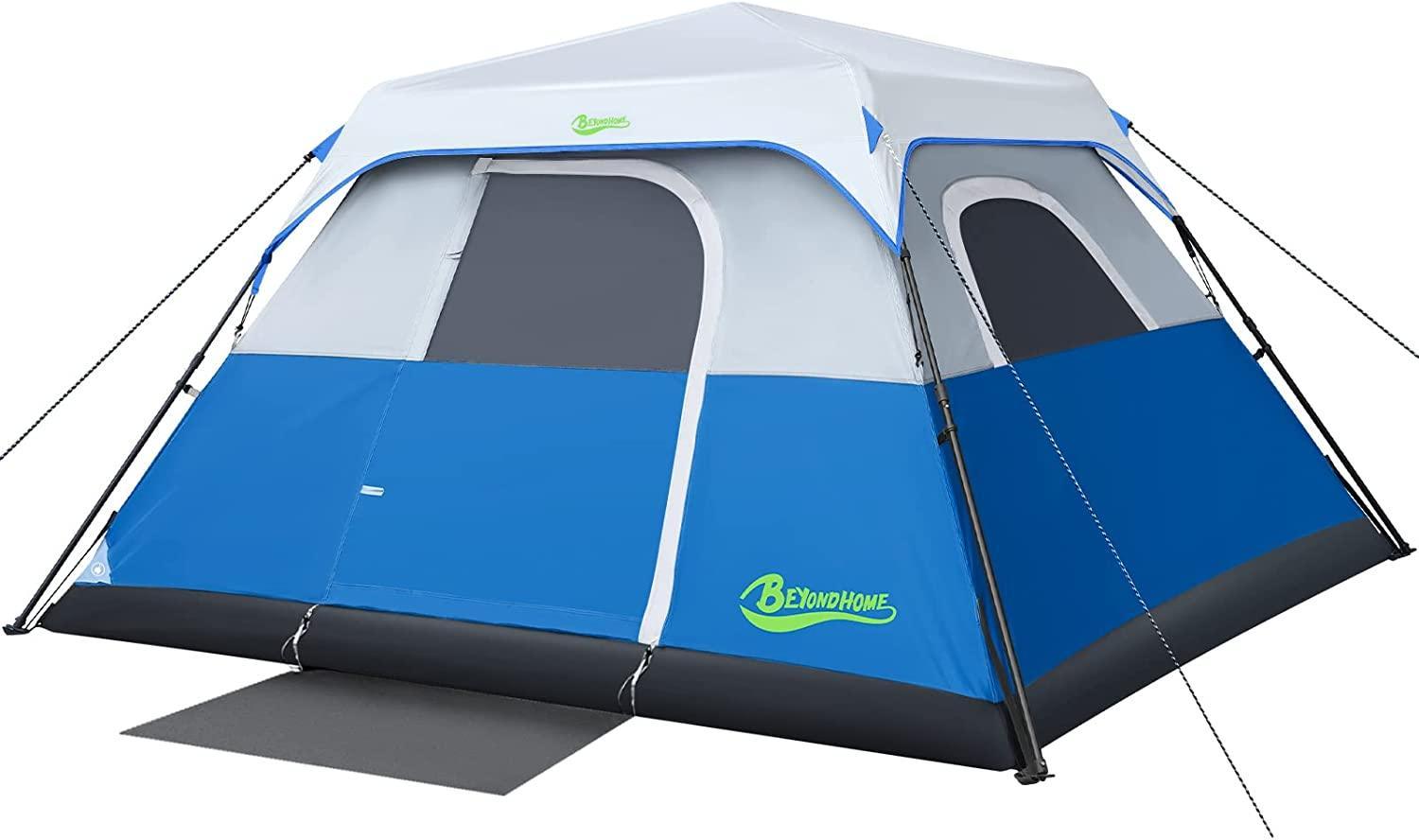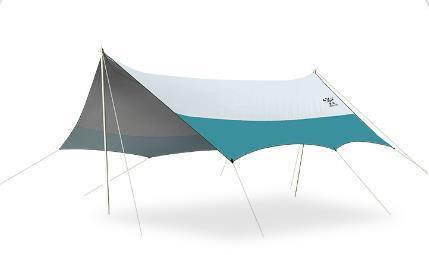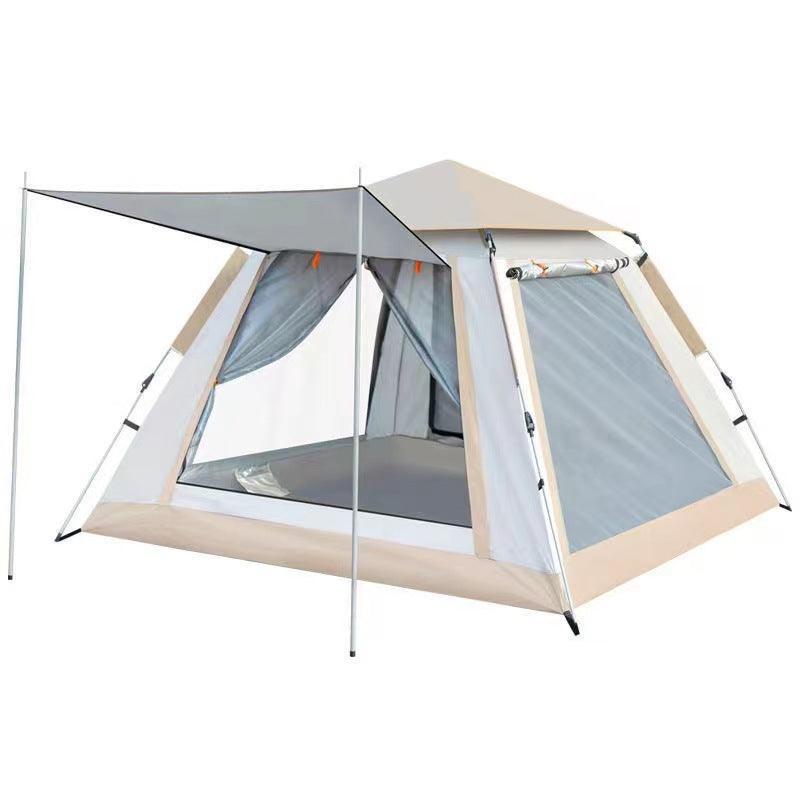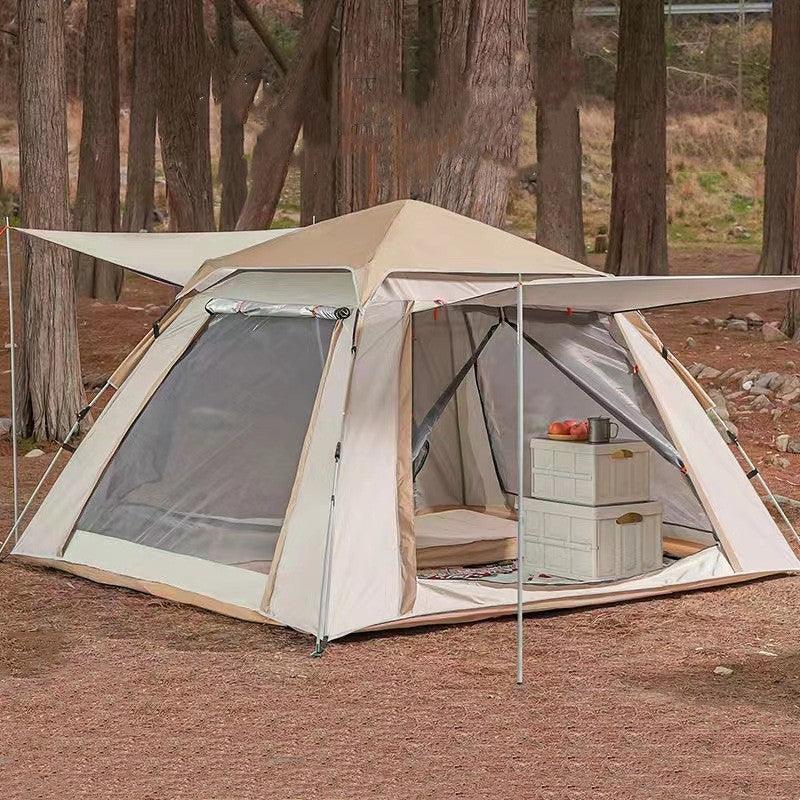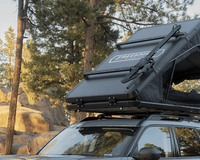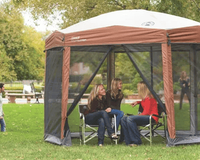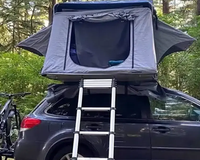If you’re an avid camper, you know that proper tent maintenance is essential to ensuring your camping trips are comfortable and enjoyable. Keeping your tent clean and free from dirt and debris will help it stay in good condition for many years of adventuring. In this blog post, we'll bring you a professional guide on how to clean a tent. With our tips and tricks, you'll be able to keep your shelter looking fresh as new so you can get back out there enjoying nature!

Why Do You Need to Clean Your Tent?
Cleaning your tent is crucial for several reasons. First, grime and debris can cause wear and tear on the fabric, weaken waterproof coatings, and affect the overall performance of the tent. Secondly, cleaning helps maintain the effectiveness of the tent's waterproof coatings, ensuring that rainwater beads up and rolls off the surface. Moreover, a clean tent prevents unpleasant odors, mold, and mildew growth. By regularly cleaning your tent, you can ensure its longevity and maximize your camping enjoyment.
When to Clean Your Tent?
Knowing when to clean your tent is crucial to ensure its longevity and performance. Here are some instances when you should consider tent cleaning:
- After Each Camping Trip: It's a good practice to give your tent a quick inspection and cleaning after every camping trip. This allows you to remove any visible dirt, debris, or stains that may have accumulated during your outdoor adventure.
- Visually Dirty: If your tent looks particularly dirty, caked with mud, or covered in stains, it's a clear sign that it needs a thorough cleaning. Even if it's not after every trip, regular visual inspections can help you determine when your tent requires cleaning.
- Waterproofing Issues: Over time, the tent's waterproof coatings may degrade, resulting in reduced water repellency. If you notice that water no longer beads up on the tent's surface or the fabric wets out easily, it's an indication that cleaning and reproofing may be necessary.
- Camping Near the Ocean: Camping near sandy or coastal areas exposes your tent to sand, saltwater, and salty air. Sand can act as micro-abrasives on fabrics, while saltwater and salty air can corrode zipper sliders and affect the integrity of tent poles. If you've camped in such environments, it's important to clean your tent to remove any sand, salt residue, or potential corrosive elements.
- Prolonged Exposure to Campfire Smoke: Campfire smoke can leave a layer of microparticles on your tent fabric, which not only affects the cleanliness but may also impact breathability. Cleaning your tent after exposure to campfire smoke helps eliminate these particles and keeps your tent fresh.
- Prolonged UV Exposure: Ultraviolet (UV) rays from the sun can gradually degrade tent materials. Although exposure to UV rays is inevitable, regular cleaning helps remove dirt and grime that may have been baked into the fabric by the sun, thus helping to prolong the life of your tent.
By paying attention to these indicators, you can determine the appropriate timing for washing a tent, ensuring your camping tent remains in good condition and ready for your next outdoor adventure.
How to Keep Your Tent Clean While Still on the Road
Maintaining cleanliness while camping can help reduce the need for deep cleaning later. Here are some tips to keep your tent clean while on the road:
- Sweep regularly: Use a dustpan and broom to remove dirt, leaves, and debris from the tent floor.
- Shoes off policy: Encourage everyone to remove their shoes before entering the tent to prevent tracking dirt inside.
- Use a groundsheet: Using a groundsheet or footprint under your tent provides an additional layer of protection, preventing direct contact with the ground and minimizing dirt and moisture transfer.
- Keep a doormat and water nearby: Place a doormat outside your tent entrance to wipe off your shoes before entering. Keep a tub of water and a towel nearby to clean your feet and quickly wipe down any dirty clothes.

How to Wash a Tent at Home
Follow these steps on how to wash a tent at home:
- Shake off dirt and debris: Before packing up, shake out the tent to remove loose dirt, leaves, and debris.
- Spot clean: Use a soft brush or sponge and cold water to spot clean any stains or stubborn dirt on the tent fabric. Avoid using harsh household soaps or detergents, as they can damage the tent's materials.
- Prepare cleaning solution: Fill a bathtub or large tub with cool water. Add a small amount of a neutral soap specifically designed for outdoor gear or a tent cleaner suitable for synthetic fabrics.
- Immerse the tent: Submerge the tent in the tub, ensuring that the entire tent body and rainfly are soaked.
- Agitate and clean: Gently agitate the water and use a sponge or soft brush to clean the tent, paying attention to areas with dirt or stains. Allow the soap to penetrate the fabric.
- Rinse thoroughly: Drain the tub and refill it with clean water. Rinse the tent thoroughly to remove all traces of soap.
- Air dry: Hang the tent or lay it out flat in a well-ventilated area out of direct sunlight. Ensure that the tent is completely dry before packing it away.
How to Clean Tent with Mold
- Safety precautions: Wear gloves and a mask to protect yourself from mold spores.
- Set up the tent: If possible, set up the tent outdoors in a well-ventilated area.
- Brush off loose mold: Use a soft brush or cloth to remove any loose mold spores from the tent fabric.
- Spray and clean: Spray the enzyme cleaner or tent mold remover onto the affected areas of the tent and scrub gently with a sponge or soft brush. Pay close attention to seams, corners, and areas where mildew on tent is concentrated.
- Rinse thoroughly: Rinse the tent with clean water to remove any traces of cleaning solutions.
- Air dry: Allow the tent to air dry completely in a well-ventilated area, ensuring there is no moisture left that could encourage mold growth.
- Apply DWR treatment: Once the tent is dry, consider applying a Durable Water Repellent (DWR) treatment to restore the tent's water resistance.
Conclusion
Regularly cleaning your tent is crucial for its longevity and performance. By following proper cleaning techniques and keeping your tent clean while on the road, you can ensure a comfortable and enjoyable camping experience for years to come. Remember to always check the manufacturer's instructions and use suitable cleaning products for your specific tent.



